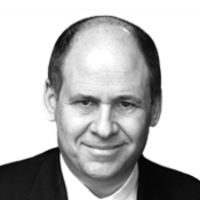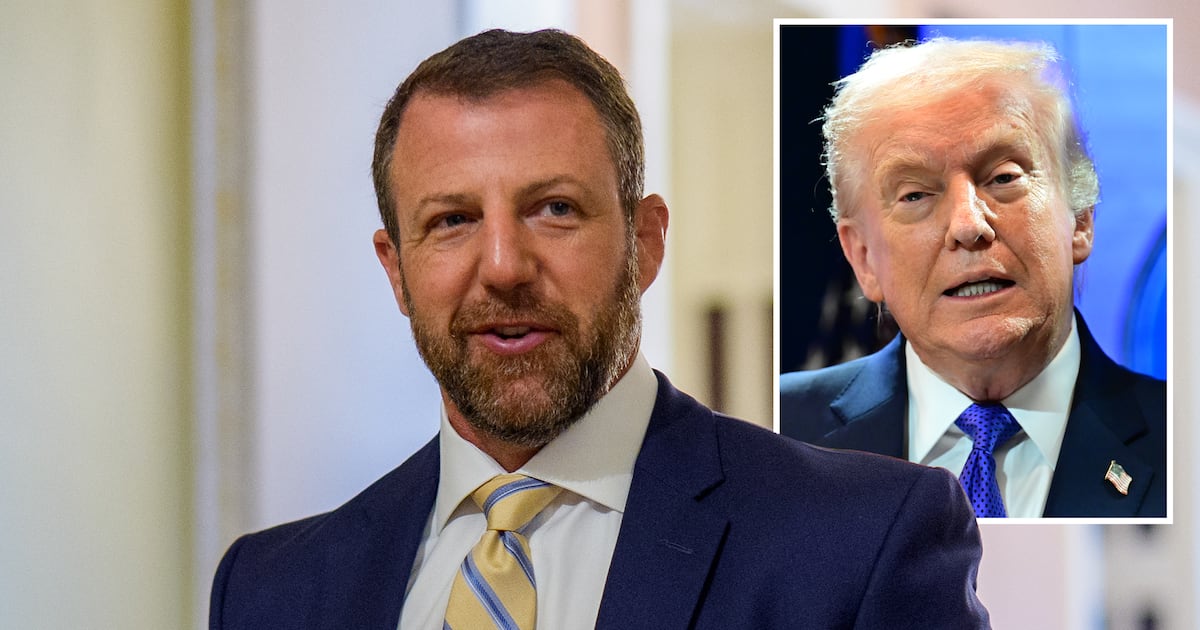So far, liberal analysis of the decision in Greece v. Galloway was best summarized by Andy Borowitz’s satirical headline: “In Landmark Decision, Supreme Court Strikes Down Reason Country Was Started.”

How did we get to a point where five members of the court would believe that opening a public town board meeting in the community of Greece, New York, with an explicitly Christian prayer about Easter is no big deal? That was the gist of Justice Anthony Kennedy’s majority opinion and the (mostly) concurring opinions by Chief Justice John Roberts and Justices Antonin Scalia, Clarence Thomas, and Samuel Alito.
Beyond the constitutional ramifications, I’m curious about how the backgrounds and life experiences of the justices affected their legal opinions and their moral imagination. This is treacherous terrain. Jurists like to claim they are only interested in applying the law; recall how during her confirmation hearings in 2009, Justice Sonia Sotomayor had to back away from her earlier comment that the perspective of a “wise Latina” would be useful on the court. But every justice is shaped by his or her heritage, especially when the case involves religion. The refusal of most court observers to even mention the religious affiliation of the justices has hampered our understanding of this important case.
While Greece was decided 5-4, the religious split on the court is 6-3—six Catholics and three Jews. Sotomayor, a liberal Catholic, voted with Justices Elena Kagan, Stephen Breyer, and Ruth Bader Ginsburg. In a country founded by Protestants who still make up 48 percent of the U.S. population (22 percent of Americans are Catholic and 2.2 percent are Jewish), the absence of a Protestant from the court is extraordinary. It wasn’t until 1836 that the first Catholic (Roger Taney) was appointed and until 1916 that the first Jew (Louis Brandeis) made it to the high court. Now Catholics and Jews dominate, an only-in-America phenomenon. The flip-side of our unusual national talent for inclusion is the cultural amnesia displayed in this case by the court’s majority.
The Founders—so backward in their attitudes on race—launched the republic on the basis of religious tolerance. Benjamin Franklin believed in prayer but stressed the importance of ecumenical “public religion.” Thomas Jefferson did not include his service as president of the United States on his tombstone but requested that his authorship of the Virginia Act for Establishing Religious Freedom be included. James Madison believed that “religion & Govt will both exist in greater purity, the less they are mixed together.” With God unmentioned in the Constitution, the Founders set a course that allowed, over Madison’s objections, for chaplains offering prayers at public meetings. But the tradition has favored deistic references (“God,” “the Almighty,” “the Supreme Being”) over sectarian specifics. “The Founders wanted to keep it general because theological disputes led to political upheaval,” says Jon Meacham, author of American Gospel.
In his majority opinion, Kennedy tried to argue that the court was merely upholding that ecumenical tradition. “Willing participation in civic affairs can be consistent with a brief acknowledgment of their belief in a higher power, always with due respect for those who adhere to other beliefs,” he wrote. But the prayers before town meetings in Greece, New York, were not about a “higher power,” which is a standard and unobjectionable prayer that would not have merited an appeal to the Supreme Court. Instead, the ministers in that New York town—who not once gave way to rabbis or imams, though they had Jewish and Muslim congregations nearby—opened a public meeting by stressing, “the saving sacrifice of Jesus Christ on the cross. We draw strength, vitality, and confidence from his resurrection at Easter…”
In his concurrence, Roberts noted that “the prayers neither chastised dissenters nor attempted lengthy disquisition on religious dogma.” The chief justice seemed to be arguing that anything short of hostility or blatant evangelism was kosher.
Kagan was quoted in news accounts arguing that the town’s practices could not be reconciled “with the First Amendment’s promise that every citizen, irrespective of her religion, owns an equal share of her government.”
But deeper into her superb dissent, the junior member of the court, sensitized by her background as a Jew, got closer to the feelings of anxiety and exclusion that the court’s decision has heightened:
Let’s say that a Muslim citizen of Greece goes before the board to share her views on policy or request some permit. Maybe she wants the board to put up a traffic light at a dangerous intersection; or maybe she needs a zoning variance to build an addition on her home. But just before she gets to say her piece, a minister deputized by the town asks her to pray “in the name of God’s only son, Jesus Christ.” She must think—it is hardly paranoia, but only the truth—that Christian worship has become entwined with local governance. And now she faces a choice: to pray alongside the majority as one of that group or somehow to register her deeply felt difference. She is a strong person, but that is no easy call—especially given that the room is small and her every action (or inaction) will be noticed. She does not wish to be rude to her neighbors, nor does she wish to aggravate the board members whom she will soon be trying to persuade. And yet she does not want to acknowledge Christ’s divinity, any more than many of her neighbors would want to deny that tenet.
So assume she declines to participate with the others in the first act of the meeting—or even, as the majority proposes, that she stands up and leaves the room altogether. At the least, she becomes a different kind of citizen, one who will not join in the religious practice that the town board has chosen as reflecting its own and the community’s most cherished beliefs. And she thus stands at a remove, based solely on religion, from her fellow citizens and her elected representatives.
You would think that these words would carry some meaning for the Catholic majority. It wasn’t so long ago that Catholics faced great discrimination in the U.S., especially outside major cities. Catholics launched parochial schools in the 19th century after finding that Protestant-dominated public schools made their children uncomfortable. While theocracy was a Catholic tradition for hundreds of years in Europe (where it was the Protestants who began by “protesting” the abuses of state religion), the Catholic Church in recent decades has gone to pains to stress inclusion. In 1965, the Vatican II encyclical declared discrimination as “foreign to the mind of Christ.”
Of course, Roberts, Scalia, Thomas, and Alito aren’t exactly Vatican II Catholics; Kennedy can be a Pope Francis man on some days, but not in this case. All were born after the worst of the anti-Catholic bias had abated in the U.S. and suffer from a collective memory loss unworthy of their intelligence. They are often accused of lacking empathy, which is another way of saying that they lack moral imagination. With judicial temperaments abstracted to the point of indifference, they seem incapable of imagining themselves even in the shoes of their own grandparents, much less people different from themselves. This is among the worst judicial traits imaginable.






